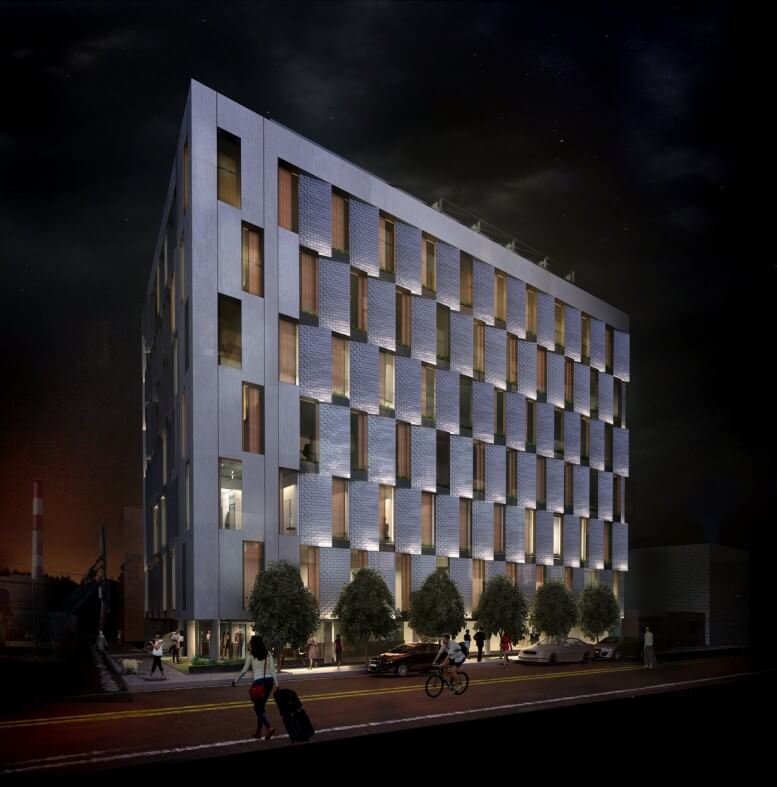Yesterday, Mayor de Blasio and City Council Speaker Mark-Viverito rolled out several initiatives to create industrial jobs across the city, including a fund for new manufacturing space and a stricter permitting process for hotels planned in industrial zones.
The announcement touts $115 million in city funding and predicts that the new policies will create up 20,000 new jobs. The fund to develop new industrial space will take advantage of $64 million in city loans and grants and $86 million in private funding, and another $10 million will go toward building 40,000 square feet of shared workspace for manufacturing startups.
But the most contentious part of the plan is a special permit for new hotels in industrial business zones (IBZs). When the mayor’s office first floated the idea in the spring, activists wanted the new approval process to require union workers in hotels. The city hasn’t spelled out the union worker requirement yet, but the president of the Hotel Trades Council, Peter Ward, supports de Blasio’s plan.
However, hotel developers will be able to build as-of-right in part of the manufacturing zone around JFK, because hotels there help both travelers and airline employees. Oddly, the city’s press release doesn’t mention the IBZ around LaGuardia Airport in East Elmhurst and Astoria, which could likely support more hotel development.
The measure is designed to stunt the runaway construction of hotels in IBZs, particularly in Long Island City, Williamsburg, and Bushwick. The transit-rich neighborhood around Court Square and Queensboro Plaza is ideal for new hotels and travelers, but the desolate industrial area between Long Island City and Astoria—known as Ravenswood—has seen a profusion of budget hotels. While Ravenswood might benefit from new residential development, neither the administration nor the City Council will support private applications for new residential construction in IBZs going forward.
There will also be restrictions on new storage facilities in industrial zones, because they don’t create many jobs and occupy large footprints.
Hotel construction doesn’t necessarily benefit the surrounding neighborhood, particularly in quieter parts of the outer boroughs. But clubs, bars and big box stores will still be allowed in industrial zones, even though they also threaten to price out small manufacturing businesses. Hotel development drives up rents and property values in M-1 zones, creating strong incentives for landlords to sell or lease to hoteliers rather than industrial companies.
New hotels are particularly contentious in East Williamsburg and Bushwick, but neighbors there might be more accepting of new office construction, which brings in creative and tech tenants and doesn’t demand as much parking. Developers are already converting large industrial buildings to office space in the two hoods off the L train. The city’s release only hints at encouraging more office space, even though young companies are clamoring for affordable and new buildings to occupy in north Brooklyn.
The council and community groups will develop a plan to “to bring a mix of light industrial, commercial, and limited residential development” to certain industrially zoned areas, beginning with the Greenpoint-East Williamsburg-Bushwick IBZ.
Subscribe to YIMBY’s daily e-mail
Follow YIMBYgram for real-time photo updates
Like YIMBY on Facebook
Follow YIMBY’s Twitter for the latest in YIMBYnews

